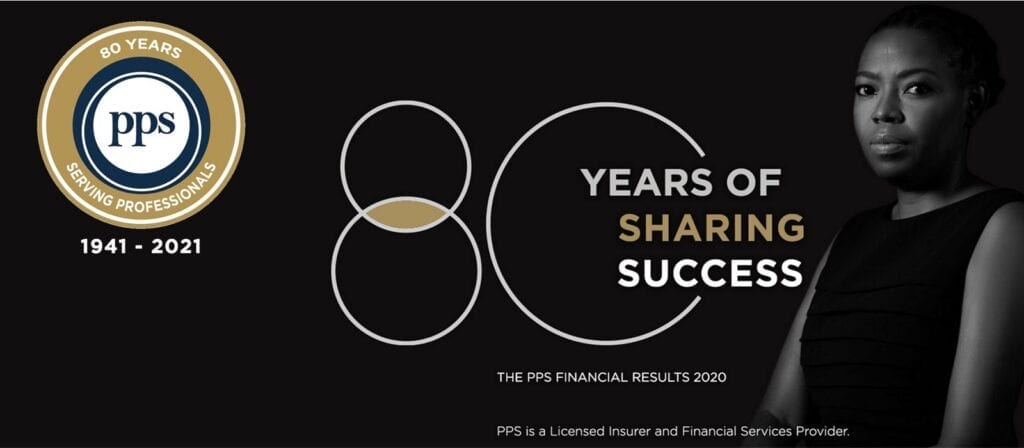Unlike a listed company, which is owned by shareholders, a mutual company is made up of a community of members. This community of members guides the direction and governance of the entity, rather than shareholder interests. While this is the first time I have worked at a mutual organisation, I have not only been truly inspired by the leadership team and the staff at PPS, but also by our members and the business model itself.
In a mutual company, the members are essentially the ‘shareholders’ of the company. The members fundamentally own the company as they share in all the company’s profits. The concept of mutuality is exactly that – it is an organisation that is owned by and exists for the benefit of its community of members.
Unlike the shareholders of a listed company, the members of a mutual company usually have much more in common. This can range from the members’ occupation to even religion. This creates an affinity at the core of the company. At PPS, all our members are graduate professionals, typically with a minimum of a four-year degree in a professional field.
Due to the concept of a community that underpins the mutual business model, the leadership style required to run a mutual company is inherently different to that of a company with shareholders and thus requires a unique approach.
In a mutual, it is the members’ money that keeps the company going and the company owes it to its members to use the funds with extra prudence. There are no shareholders to go to if more capital is required. Funding of future growth and projects must all come from reserves built up over time, essentially past profits. This means that there is more of a balanced strategy when it comes to business spend. A mutual cannot justify expensive plans that only yield returns in the very long term, as this would be unfair to existing members who might not be around to benefit from the upside. Therefore inter-generational fairness is important. A mutual does, however, have the benefit of not having impatient shareholders who focus on short term results.
When it comes to listed companies, most shareholders are really only interested in receiving a competitive return on their investment. As a result of this, the performance contract of a CEO of a shareholder company is typically heavily focussed on generating shareholder return, and not as strongly focussed on building the member community and delivering more benefits to that community. Here at PPS, we are proud to be focusing our efforts on our member community.
Like any business, however, a mutual organization takes risks – taking risks is intrinsic to doing business. But a mutual is typically faced with less pressure to chase short term profits, and hence can take less risks in order to simply boost short-term shareholder returns. There is always a longer timeframe when it comes to strategy. The longevity and sustainability of the organization is paramount to the member community.
At a mutual insurance company the members do not only measure the success of the company, and subsequently also my success, purely on return on investment, but also by how we meet their financial needs and by how we succeed in living up to our core purpose. An important goal for a mutual, like any other business, is to get more members, to retain current members and to make sure that members buy more products. The products must also coincide with the core purpose of the organisation. Products sold to our members must therefore meet their specific needs, reducing the need to go elsewhere.
Just because there is not as much focus and pressure on short term profitability does not mean that investment returns and profitability are not important metrics for mutual companies. These are still very important to members, as most of this upside is usually returned to them. At PPS we have a high financial performance culture. For example, the total cumulative profit-share allocation to our members over the last ten years reached R22 billion recently. This is very important to members as it is money that will potentially go back into their pockets. By simply buying qualifying products from the company, the member shares in the profits of the company.
In the shareholder model, the company has shareholders who make a conscious decision to buy or sell shares in the business. If the company is successful and exceeds the expected profitability, the share price goes up. Even if current profits are low, but if there are good growth expectations (ie the market believes that current spending will yield good future returns), it will support the share price. If things go badly, or if shareholders do not like what is being done by the company, the shareholders have the option to simply sell their shares. Shareholders are not necessarily locked in for the long-term, and there is no need for any real commitment beyond the financial gain. It works different for a mutual as members are generally there for the long-term.
In order to ensure success in the mutual model, the leadership style is one of shared custodianship. The long-term mission and vision – what the mutual is there for in the first place – is critical. It requires a top management team that buys into that vision, and a CEO that lives and breathes it.
It is important to understand that leadership is not the same in every environment – a successful leader in environment A might not survive in environment B. Personally I come from a ‘left brain’ actuarial environment, but people inspire me. I have learned early in my career that the analytics are important, but it is only the foundation. What really makes a business successful is its people and a positive business culture that is created and fostered. It has been said that “culture eats strategy for breakfast”. My philosophy has always been that as long as the team is happy and healthy – the company will prosper.
Izak Smit, took over the reigns as Chief Executive Officer at PPS in July 2016. He was previously the Managing Executive of ABSA Financial Services Distribution in South Africa. Since joining PPS Smit has also taken up a seat as a Member of the Board of Directors of ICMIF.
Smit is a qualified actuary with an Honours Degree in Commerce and a Post Graduate Diploma in Strategy and Innovation from Saïd Business School at Oxford University. He started working at ABSA in 2005 where he was the Head of Actuarial at ABSA Life, then Head of Risk and Capital Management after which he was promoted to Managing Executive at ABSA Life. From 2011 until 2016 he was Managing Executive of ABSA Wealth and Investment Management Distribution.






